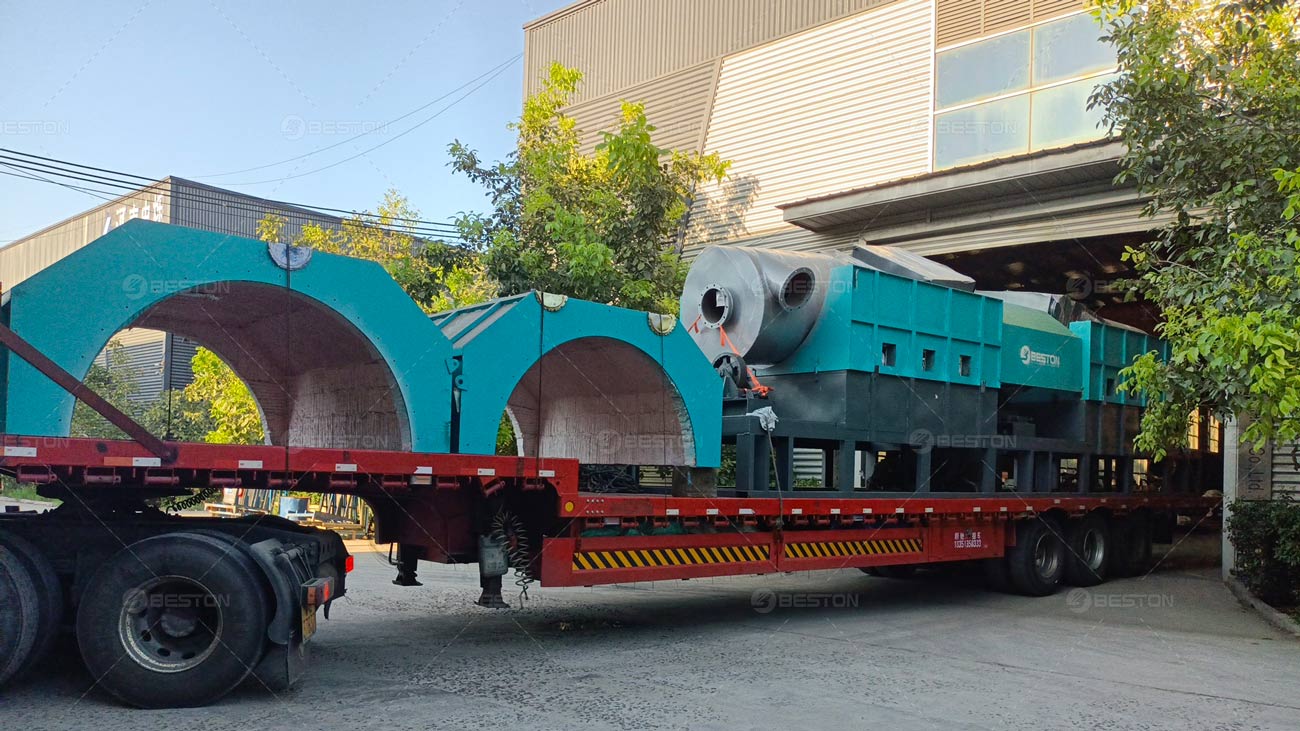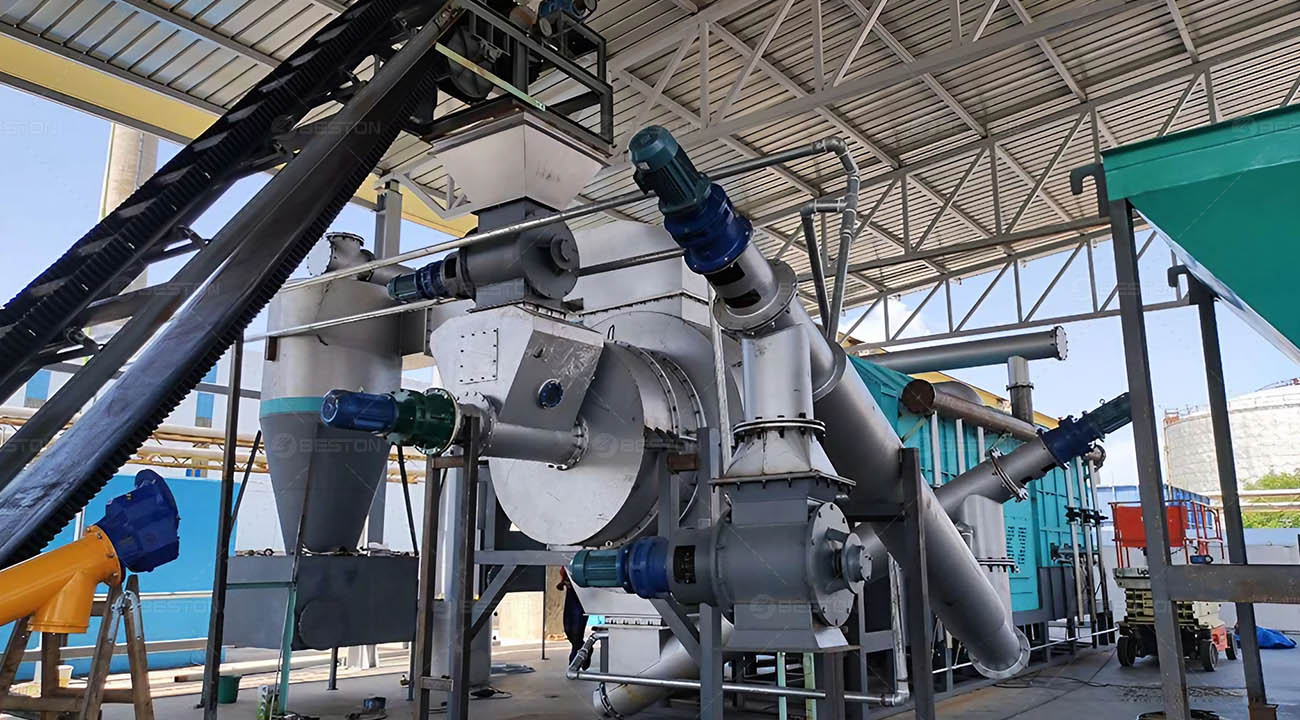Introduction
In a world marked by environmental challenges and a pressing need for sustainable energy sources, the significance of biochar cannot be overstated. Biochar, a carbon-rich biomass product derived from organic materials, has emerged as a promising solution for both carbon sequestration and energy sustainability. This article delves into the intricate relationship between biochar production equipment and the pursuit of sustainable energy development.

Understanding Biochar Production
Biochar as a Carbon-Rich Biomass Product
Biochar, often likened to “black gold,” is a solid material produced through the pyrolysis, gasification, or torrefaction of organic matter, such as agricultural residues, wood chips, and even sewage sludge. It stands out due to its exceptional carbon content, making it a potent tool for carbon sequestration and soil enhancement.
Traditional Methods vs. Modern Biochar Production Equipment
Traditionally, biochar production relied on rudimentary techniques, often resulting in inefficient processes and limited scalability. However, with the advent of modern biochar production equipment, the landscape has transformed significantly. These cutting-edge technologies have revolutionized biochar production, making it more efficient and environmentally friendly.
Benefits of Using Advanced Equipment
Modern biochar production equipment offers several advantages. It enables precise control over the pyrolysis process, optimizing biochar quality and yield. Moreover, it minimizes emissions and energy consumption, aligning with sustainable energy goals. These benefits underscore the crucial role of advanced equipment in biochar production.
Sustainable Energy Production
The Global Shift Towards Sustainable Energy
As nations worldwide grapple with the consequences of climate change, there is a growing emphasis on transitioning to sustainable energy sources. Renewable energy technologies, such as solar and wind power, have gained prominence. However, biochar’s potential contribution to this shift should not be underestimated.
Challenges in Sustainable Energy Production
Sustainable energy production faces challenges such as intermittency and energy storage. Biochar, with its capacity for storing energy in a stable form, offers a potential solution to address these issues. It serves as a bridge between energy generation and consumption.
The Potential of Biochar in Energy Sustainability
Biochar’s significance in energy sustainability extends beyond its role as a carbon sink. Its use as a renewable energy source, particularly through gasification and torrefaction processes, presents a promising avenue for creating a more sustainable and reliable energy ecosystem. Welcome to consult Beston Group Co., Ltd. for more information on biochar production

Biochar Production Equipment Technologies
Pyrolysis Reactors: A Cornerstone of Biochar Production
Pyrolysis reactors play a pivotal role in charcoal making machine. These specialized devices use high temperatures in an oxygen-limited environment to convert biomass into biochar. Their efficiency and versatility make them indispensable for sustainable biochar production.
Gasification and Its Relevance to Energy Generation
Gasification, a thermal process that converts biomass into combustible gases, has gained attention as a means of energy generation. Biochar produced during gasification can serve as a stable carbon-rich byproduct, further enhancing the environmental benefits of this technology.
Torrefaction: Unlocking Biochar’s Energy Potential
Torrefaction, a mild pyrolysis process, enhances the energy content of biomass. This transformed biomass can be used directly as a renewable fuel or combined with traditional fuels, reducing greenhouse gas emissions and promoting sustainability in the energy sector.
Environmental Impact and Benefits
Carbon Sequestration and Climate Change Mitigation
One of biochar’s most celebrated attributes is its ability to sequester carbon dioxide, a potent greenhouse gas. By locking carbon in a stable form, biochar mitigates climate change and contributes to a more sustainable future.
Soil Enrichment and Agricultural Sustainability
Biochar’s positive impact extends to agriculture. When incorporated into soils, it enhances nutrient retention, water-holding capacity, and microbial activity. This results in increased crop yields, reduced fertilizer requirements, and improved soil health.
Reducing Waste Through Biochar Production
Mobile biochar machine also helps address waste management challenges. By converting organic waste materials into biochar, it reduces landfill waste and minimizes the environmental footprint of waste disposal practices.
In conclusion, the intersection of biochar production equipment and sustainable energy development represents a remarkable synergy. As we navigate the challenges of a changing climate and seek innovative energy solutions, biochar stands as a testament to human ingenuity and the potential for harmonizing environmental and energy objectives. By embracing modern technologies, we pave the way for a greener and more sustainable future.